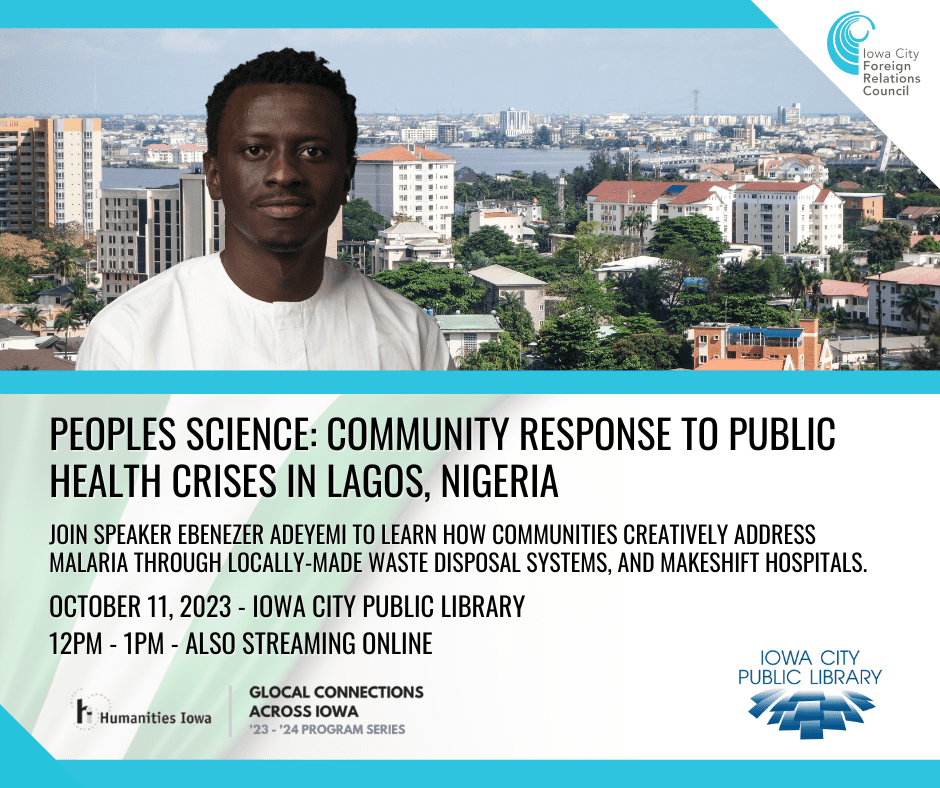Community response to Public Health Crises in Lagos, Nigeria

- This event has passed.
Community response to Public Health Crises in Lagos, Nigeria
October 11, 2023 @ 12:00 pm - 1:00 pm
Free
PART OF THE HUMANITIES IOWA – GLOCAL CONNECTIONS ACROSS IOWA ’23 – ’24 PROGRAM SERIES
Ebenezer Olamiposi Adeyemi is a PhD Candidate in the department of anthropology at the University of Iowa (UI), under the advisement of Professor Ted Powers. Ebenezer holds a Bachelor of Arts degree in Anthropology and a Master’s degree in Peace and Conflict Studies–both from the University of Ibadan in Nigeria. He also received a Master’s degree in Anthropology from the University of Iowa in May 2021. Ebenezer’s broad research interests center around medical anthropology, infrastructure, the intersection of urban landscape and public health, African studies, and survival strategies in marginalized urban communities. For his ongoing doctoral research, Ebenezer is exploring the strategies that residents of Makoko, a large informal settlement characterized by inadequate public infrastructure, including waste disposal systems, public hospital, in Lagos State, Nigeria, use to access healthcare to treat malaria, the most prominent public health issue in their community.
Different statistics show that malaria is the main public health issue in Nigeria, where it accounts for more causes of death than any other country in the world. However, people who live in marginalized communities, which the WHO calls ‘malaria high transmission areas,’ are more susceptible to malaria infection and death due to government marginalization and inadequate public infrastructure, including public hospitals. Adeyemi will explore the concept of “community-developed infrastructure” to explain several ingenious approaches, including the production of locally-made mosquito nets and coils, construction of makeshift waste disposal systems and hospitals, that residents of Makoko employ to reduce their exposure to malaria-causing mosquitos and to treat the disease whenever they are infected.
Different statistics show that malaria is the main public health issue in Nigeria, where it accounts for more causes of death than any other country in the world. However, people who live in marginalized communities, which the WHO calls ‘malaria high transmission areas,’ are more susceptible to malaria infection and death due to government marginalization and inadequate public infrastructure, including public hospitals. Adeyemi will explore the concept of “community-developed infrastructure” to explain several ingenious approaches, including the production of locally-made mosquito nets and coils, construction of makeshift waste disposal systems and hospitals, that residents of Makoko employ to reduce their exposure to malaria-causing mosquitos and to treat the disease whenever they are infected.
*This program is supported by Humanities Iowa. The views and opinions expressed by this program do not necessarily reflect those of Humanities Iowa.
